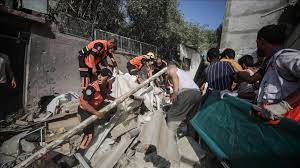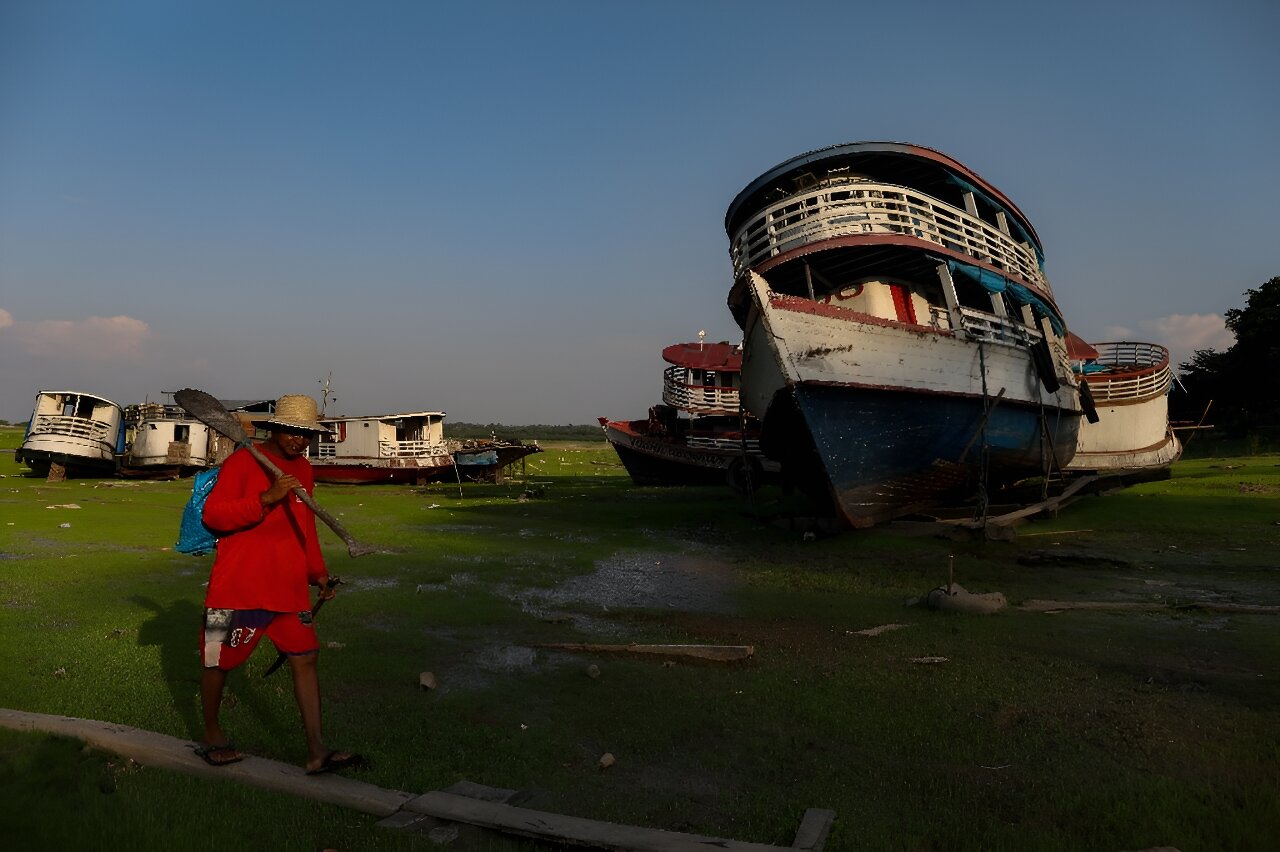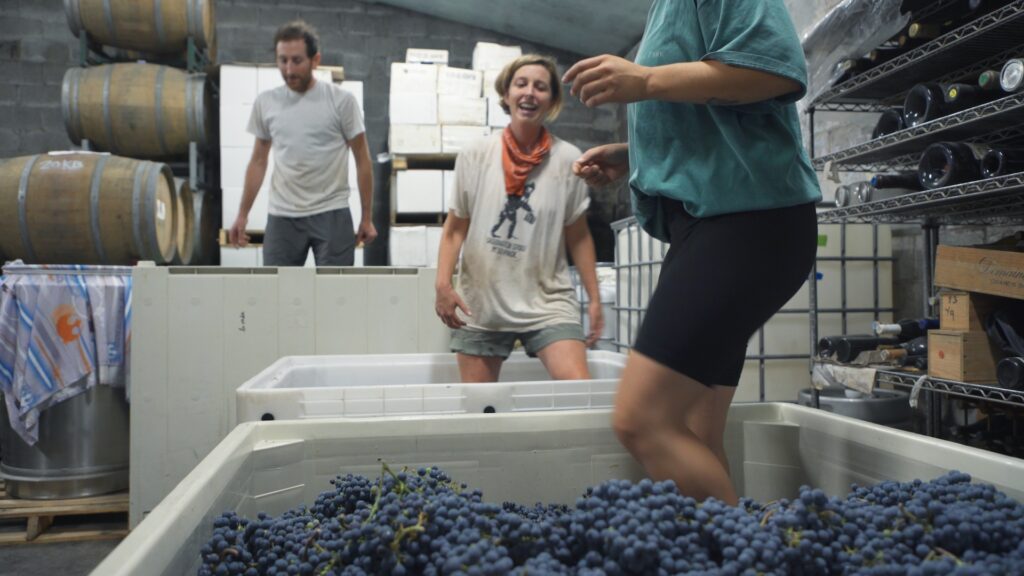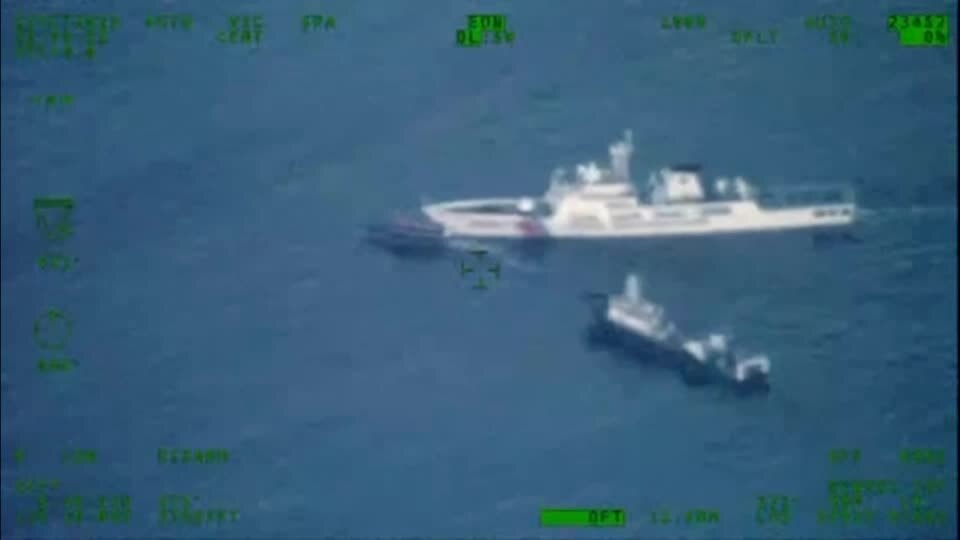뉴스&스피킹(영자신문)
하루 10분이면 영어에 대한 두려움을 극복하고 누구나 유창하게 영어를 구사하실 수 있습니다.
-
 How Do You Define Success? And now, Words and Their Stories, from VOA Learning English.
How Do You Define Success? And now, Words and Their Stories, from VOA Learning English.
We all want to be a success in life. But success can look different from person to person. Perhaps the key to success is really knowing yourself. What do you want? What are your skills and strong suits? What are you really good at and what are you not?
Climbing the ladder of success also requires different strategies in different industries. If you want to be a success in a traditional corporate environment, you may have to wear business clothing like a suit. As they say, you may have to dress for success.
If you want a creative job, you may need to wear the latest fashions. Again, English has a common expression about clothes and future job goals: “Dress for the job you want, not the one you have.”
However, success takes more than just the right clothes. It also takes hard work. Oftentimes others do not see all the hard work that goes into a project. They think success comes suddenly, for example overnight. Let’s say an unknown writer makes it big with her first book. People may call her an overnight success. But they do not know about the many years she spent studying and writing.
Another ingredient in the recipe for success is a plan. To reach your goal, you need to get organized and break the goal down into doable steps. You know what they say – if you fail to plan, you plan to fail.
Many English phrases make the road to success sound like a real physical path -- something we could find on a map.
Real roads are paved with materials such as asphalt. But when we talk about success, the roads to it are paved with different materials. Sometimes we say the roads are paved with gold. This suggests a place where success, especially financial wealth, is easy to come by.
For some people the road to success is paved with hard work or luck. Others may find their road to success is paved with failures. Learning from their failures taught them how to succeed.
Often if you follow the right road, you can achieve your goal. Then, life is filled with the sweet smell of success. You have the world at your feet. You are riding high. You’ve got it made and are killing it. You are golden. As you can see, we have many expressions describing success.
But make sure that you do not lose sight of what really makes you happy and successful. Some people become a victim of their own success. This means you start having problems because of your success. And that explains our final popular English saying, a gentle warning: Be careful what you wish for: you just might get it.
And that’s all the time we have for this Words and Their Stories.
How would you define success for your English studies? And do you have a plan to reach it? Go to our website and comment on the story. Or you can send us an email to this address: LearningEnglish@voanews.com.
In the subject line, write Words and Their Stories and “success.”
Until next time … I’m Anna Matteo.View -
 Gaza Aid Halted in Egypt as Israeli Air Strikes Continue Emergency aid for Gaza was being held up at a border crossing in Egypt Monday as Israel continued to launch air strikes into the Palestinian-ruled territory.
Gaza Aid Halted in Egypt as Israeli Air Strikes Continue Emergency aid for Gaza was being held up at a border crossing in Egypt Monday as Israel continued to launch air strikes into the Palestinian-ruled territory.
Egyptian officials said Israel has not cooperated in recent days with efforts to get large aid shipments into Gaza from a crossing in Rafah, Egypt.
On Friday, Israel began ordering Palestinians to leave Gaza City and surrounding areas in the north, telling them to head to the south. Israeli officials say the order was issued ahead of a planned military ground campaign against forces of Palestinian ruler Hamas.
Hamas militants have built major military bases in the north. Israel’s expected ground offensive there is expected to center on killing Hamas leaders, recovering captives, and destroying the group's military equipment, The Associated Press (AP) reported.
More than a million people had already fled their homes in northern Gaza in preparation for a ground invasion.
Israel has continued to attack positions in Gaza after Hamas launched a major military operation into southern Israel on October 7. Israeli airstrikes have destroyed whole neighborhoods as Palestinian militants continued firing rockets into Israel.
Israeli officials say more than 1,400 Israelis – including many civilians – have died in the conflict. Health ministry officials in Gaza say at least 2,750 Palestinians have been killed and 9,700 injured since the Hamas attacks began.
Israel controls the other two crossing points into Gaza. But it has declared a "complete siege" of the coastal Palestinian territory. This means Israel has cut off food, water, fuel and electricity supplies to the area.
Gaza has been under a joint Israeli-Egyptian blockade ever since Hamas seized control of the territory in 2007. The blockade closely controls movements of goods and people into Gaza.
Mediators have pressed in recent days for a cease-fire that would permit the waiting aid to enter, as well as give foreigners a chance to leave Gaza.
The AP reported Egypt's foreign minister as saying Israel “has not taken a position to open the crossing from the Gaza side.” The Israeli government did not immediately answer a request from AP for comment.
In Gaza, Palestinians crowded hospitals and schools Monday seeking shelter as food, water and medicine remained in short supply.
Hundreds of thousands of Palestinians sheltering in U.N. centers are getting less than 1 liter of water per day, the AP reported. Hospitals warned of operations nearing collapse because of power and fuel shortages.
The World Health Organization (WHO) said it was concerned about disease spread linked to mass displacements and poor water quality. Four hospitals in northern Gaza are no longer operating and 21 had received Israeli orders to close. Many doctors have so far refused, saying it would mean death for critically ill patients and people receiving breathing assistance.
I’m Bryan Lynn.View -
 Water Levels Low in North Brazil, Near Amazon River People, animals and fish who depend on the waterways connected to the Amazon River close to the Brazilian city of Manaus are facing a long period of dry weather.
Water Levels Low in North Brazil, Near Amazon River People, animals and fish who depend on the waterways connected to the Amazon River close to the Brazilian city of Manaus are facing a long period of dry weather.
The city’s port is an important economic area for northern Brazil. But recently, the water level of the area where the Amazon and Rio Negro rivers meet reached a very low level.
The civil defense agency in Amazonas state said the drought is hurting over 400,000 people.
Those who have floating homes or use boats to move around on the river for work cannot travel. They cannot get fuel, food or fresh water.
Animals and fish along the river are dying. Thousands of dead fish float on the water's surface. A number of river dolphins died when they washed up on land. Dolphins are rare water mammals that live in Brazil’s biggest rivers.
The organization that runs the port said the water level is only about 14 meters, the lowest since measurements started in 1902.
The previous all-time low came in 2010.
Without water, ‘there is no life’
Brazil’s monitoring and disaster alert center, Cemaden, said the rainfall in the Amazon area is the lowest it has been since July to September 1980.
The nation’s science ministry said the weather pattern known as El Niño is to blame for the drought and low rainfall.
Reporters in the area are describing the situation as “grim.”
Raimundo Silva do Carmo is a fisherman. But he cannot fish at this time. It takes him much of the day just to get water. One recent morning he was making his fourth visit of the day to a well east of Manaus.
He called carrying a water container back and forth “dreadful work” made harder because of the hot sun. “Without water,” he said, “there is no life.”
Another man, Joaquim Mendes da Silva is 73. For 43 years, he repaired ships on a large lake. The water is the lowest he has ever seen.
Children in the area stopped going to school one month ago because they could no longer travel by boat to the schoolhouse.
Along with Amazonas state, Cemaden said seven other states recorded their lowest rainfall in 40 years for the period from July to September.
The drought is hurting all of the waterways that connect to the Amazon River, an area that contains 20 percent of the world’s fresh water. By last week, 42 of the 62 cities and towns in the area declared a state of emergency.
In one area, about 600 kilometers east of the lake, about 300 families are having trouble getting food and supplies in the Auati-Paraná reserve. They can only use small boats to get to the closest city. As a result, their travel time is 14 hours instead of the usual nine.
Along the river, people fish for a large fish called a pirarucu. The fish weigh as much as 200 kilograms. People catch the fish and then take them to local markets. They usually bring their catch to market by boat. But they can no longer sell the fish because they cannot reach the market.
Edvaldo de Lira is a local business leader. He said the fishermen “run the risk of catching fish in the lake, and it arrives spoiled. So, there is no way for us to fish,” de Lira said.
Rain does not fall all year in the Amazon area. Rainfall is light from May to October, but the El Niño weather event is reducing the rain more than usual, said Ana Paula Cunha of Cemaden.
Climate scientists say the effects of El Niño this year are stronger because of global warming. Warming temperatures, they say, are because of carbon gases from years of burning coal, oil and gas.
One of the important rivers in the Amazon area is the Madeira. It travels over 3,500 kilometers from Bolivia to Brazil. Four of its five lowest water levels were recorded in the last four years, the Brazilian Geological Survey said.
In the port city of Porto Velho, the river’s level is the lowest since measurements started in 1967. Brazil’s fourth-largest hydroelectric dam, which produces power from water, is in nearby Santo Antonio. It stopped producing power last week for the first time since it opened in 2012.
Unprecedented difficulties
For now, the Brazilian government of President Luiz Inácio Lula da Silva is sending food and water to the far away communities in the northern part of the country. Engineers will start digging paths along dry rivers for boat travel. Payments will soon go to families who cannot work.
But the problems will continue, experts say.
Photographs of dead dolphins appeared in newspapers and on television programs. Ayan Fleischmann is a hydrologist, or a scientist who studies water, at the Mamiraua Sustainable Development Institute. It describes itself as a social organization supervised by the Ministry of Science, Technology and Innovation. He said the photos were a “shock for everyone.” He said the extreme heat may have hurt the organs of the dolphins or contributed to the growth of harmful bacteria.
“It was an unprecedented tragedy,” he said. Unprecedented means never seen before.
Experts in Brazil from the National Institute for Space Research say the drought will likely continue until the end of 2023.
I’m Dan Friedell. And I’m Anna Matteo.View -
 Old Ways of Making Wine Gain New Fans Wine made by ancient methods is gaining new fans.
Old Ways of Making Wine Gain New Fans Wine made by ancient methods is gaining new fans.
Wine is an alcoholic drink made from fruit like grapes.
Natural wine uses methods that reduce processing and harmful effects on the Earth. Research company IWSR Drinks Market Analysis found that people in the U.S. are seeking natural wine in increasing numbers. At the same time, the number of wine buyers has been dropping since 2015.
Natural and other Earth-friendly wines made up less than one percent of sales in 2021. But demand for those wines was rising faster than other kinds on the whole, reported Drizly, an online site for ordering and shipping wine and other alcohol.
Most natural wines are made with organic grapes collected by hand. Organic growers do not use poisonous chemicals to stop or control insects or unwanted plant growth.
To make wine, the grapes need to be crushed. Some wine producers crush grapes by foot like people of ancient times. Afterwards, the crushed grapes ferment naturally. Manufacturers do not add water, yeast or other substances.
There are exceptions. Some natural winemakers add sulfites, a chemical produced naturally in grapes. Extra sulfites can help preserve, or keep, the wine. And some winemakers clear the final liquid of any small pieces that could make it look cloudy.
The result is wines that are earthy and less predictable than many of the wines created by bigger producers.
“The first time you taste it, you can tell it’s alive,” said John Keller. He is the owner and winemaker at Neu Cellars in Northern Michigan.
But selling natural wine processes can be difficult. Natural wine has no set definition in the U.S. It is not easy to find, since most natural wines do not identify as such on their labels.
“Natural just sounds good, but conventional wine is pretty natural too,” said Anita Oberholster. She is a professor in the Department of Viticulture and Enology at the University of California, Davis. “If the idea of natural wine is going to grow, we should do research on it and define it.”
Keller of Neu Cellars has a degree in biochemistry. He started out working for a big winemaker in California. But he left because he was not happy about all the chemical mixes it used. These include gelatin, oak dust, and eggs.
However, some say the line between natural and conventional wines is very narrow.
Many products added to wine, like yeast, are natural products, Oberholster said. And many conventional wines are made without adding anything.
Some in the industry would like to establish rules for producing natural wine. France’s wine industry took such action in 2020, enacting requirements that winemakers must meet to identify their wines as natural.
Some manufacturers argue that rules can make wine making more costly. Keller uses organic grapes but he says he cannot support the cost of repeated inspections for approval as an organic wine.
Anthony Zhang is the co-founder and CEO of Vinovest, a wine investment company. He sees another problem.
Vinovest says some wine companies are profiting from the lack of rules. They use labeling content like imagery that suggests their wine making is natural when they are not, he argues.
That can mislead buyers who often will pay higher prices for wines made by smaller producers that use natural methods.
However, buyers may have more information on wine bottles soon. Starting in December, wines sold in the European Union will have to identify on their labeling all the substances each product contains.
Oberholster expects the U.S. to pass similar measures as well in the next few years.
I’m Gregory Stachel.View -
 Philippines Accuses China of Hitting its Boats in South China Sea The Philippines has accused Chinese ships of crashing into two of its boats Sunday in disputed waters in the South China Sea.
Philippines Accuses China of Hitting its Boats in South China Sea The Philippines has accused Chinese ships of crashing into two of its boats Sunday in disputed waters in the South China Sea.
Philippine Defense Secretary Gilberto Teodoro told reporters Monday he considered the incidents a “blatant violation of international law.” Teodoro said a Chinese coast guard ship and a “militia” boat had struck Philippine resupply boats.
Philippine President Ferdinand Marcos Jr. called an emergency meeting with top military and security officials to discuss the situation. The incidents happened near a land formation known as Second Thomas Shoal in the Spratly Islands. The Spratly Islands are made up of many small islands, known as islets, and other land masses in the South China Sea.
The South China Sea, one of the world’s busiest trade routes, is rich in natural resources. China claims nearly all of the waterway as its territory. But others also claim parts of the sea. These include the Philippines, Vietnam, Taiwan, Malaysia and Brunei.
A Philippine security official told The Associated Press the incidents did not cause injuries and that damage to the ships was still being investigated.
China said the Philippine boats, or vessels, had “trespassed” without approval into what it said were Chinese territorial waters. Chinese coast guard officials said the Philippine ships had ignored repeated radio warnings to leave the area.
China’s coast guard blamed the Philippine boats for the crashes, also called collisions. "The Philippine side’s behavior seriously violates the international rules on avoiding collisions at sea and threatens the navigation safety of our vessels,” it said in a statement published on its website.
Chinese officials said the coast guard was acting to stop Philippine ships suspected of carrying “illegal” building materials.
China’s foreign ministry and embassy in Manila issued official condemnations to the Philippine government over the incidents. Philippine diplomats in Manila called in a Chinese Embassy official to protest the actions of the Chinese ships.
Philippine officials said two Philippine coast guard ships were guiding two supply boats headed to the area to drop off food and other supplies. The Philippines has a small military base near Second Thomas Shoal that has been under a Chinese blockade.
The shoal sits within a 300-kilometer “exclusive economic zone” the Philippines claims control over.
Territorial disputes over the South China Sea have at times raised tensions among claimants. The United States has no claims over the waterway. But it has warned China and other nations not to carry out aggressive moves in the sea.
In the past, the U.S. has sent ships to the South China Sea to carry out “freedom of navigation” exercises. Such operations are meant to show military force and support free movement of shipping in international waters.
The U.S. and other allies expressed alarm over the latest Chinese action. On Sunday, the U.S. State Department repeated its position that the United States would defend the Philippines in case of an armed attack.
The possible defense is covered under a 1951 treaty between the two nations. The treaty states that if Filipino forces, ships and aircraft come under an armed attack – including those of its coast guard – U.S. forces could assist with military operations.
In its latest statement, the State Department said the U.S. “stands with our Philippine allies” in opposing the “dangerous and unlawful actions” of the Chinese ships.
I’m Bryan Lynn.View

